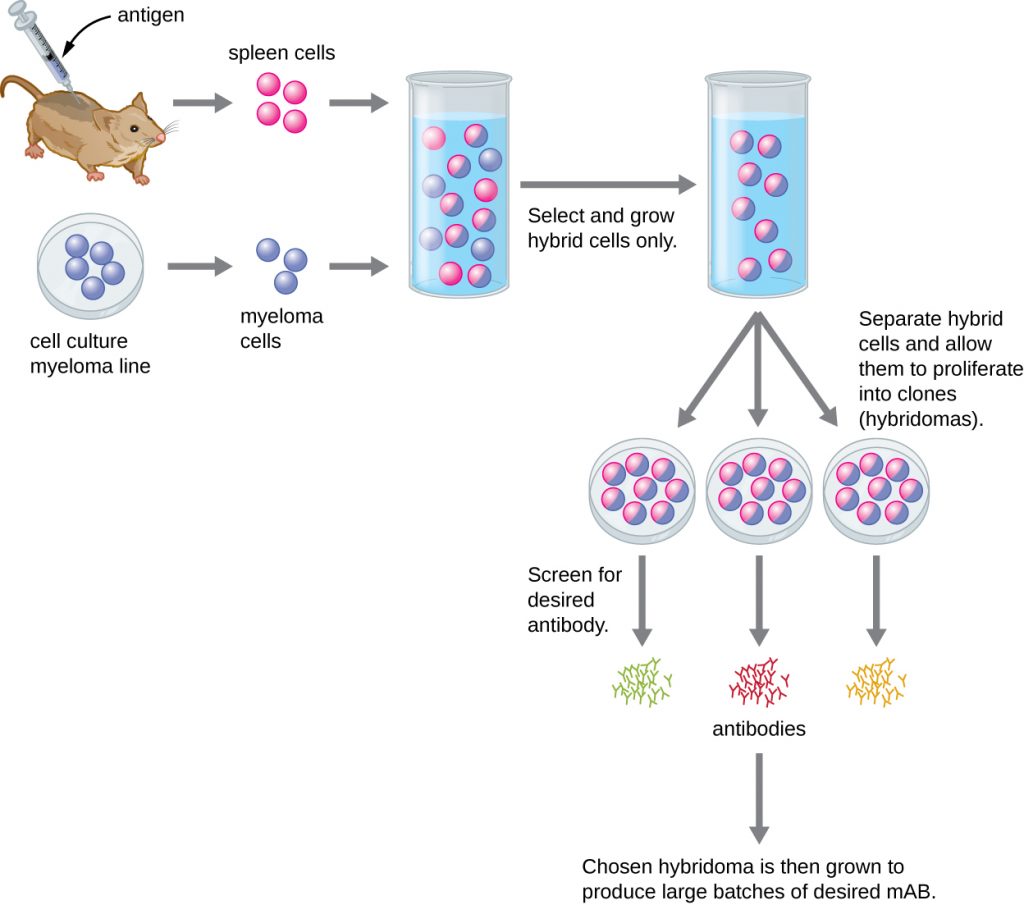Where Are The Antibodies Produced - Yo, what's good family? Today we gonna be talking about antibodies - you know, them little soldiers that protect our bodies from all sorts of nasty infections and diseases. You might have heard of them, but do you actually know how they work? And did you know that there are different types of antibodies? That's right, just like we come in all different shades and sizes, our antibodies do too. So, let's dive right into it and learn all there is to know about these bad boys.
Polyclonal and Monoclonal Antibodies
What's the difference?
Now, when it comes to antibodies, there are two main types: polyclonal and monoclonal. Polyclonal antibodies are a mixture of different types of antibodies, while monoclonal antibodies are specific to one type of antigen (that's basically the bad guy causing the infection or disease). So, think of polyclonal antibodies as a group of friends who team up to fight off the enemy, while monoclonal antibodies are like a sniper rifle precisely targeting one enemy at a time.
How Are They Made?
Both polyclonal and monoclonal antibodies are made in a lab. Polyclonal antibodies are usually produced by injecting animals (such as rabbits, sheep, or goats) with the antigen we want to produce an antibody for. The animal's immune system then produces a mixture of antibodies that we can extract from their blood. Monoclonal antibodies, on the other hand, are made by fusing a specific type of immune cell with a cancer cell. The resulting hybrid cell, called a hybridoma, produces identical antibodies that can be harvested and used for various applications, such as diagnostic tests or therapies.

Types of Antibodies
Know Your Soldiers
Now, let's talk about the different types of antibodies. There are five main types: IgA, IgD, IgE, IgG, and IgM. Each of them has a specific function and role in our immune system.
IgA antibodies are found in high concentrations in our bodily fluids (such as saliva, tears, and breast milk) and help protect against infections in our mucous membranes.
IgD antibodies are found on the surface of B cells (our immune cells that produce antibodies) and help activate them when they encounter an antigen.
IgE antibodies are involved in allergic reactions and are responsible for symptoms such as itching, swelling, and difficulty breathing.
IgG antibodies are the most abundant type in our bloodstream and help neutralize toxins, viruses, and bacteria.
IgM antibodies are the first type of antibody produced in response to an infection and help activate other parts of our immune system to fight off the invader.
Tips and Ideas
How to Boost Your Immune System
Now that we know how important antibodies are to our immunity, how can we ensure that our immune system is in good shape? Here are some tips:
1. Get enough sleep. Lack of sleep can weaken our immune system and make us more vulnerable to infections.
2. Eat a healthy and balanced diet. Our immune system needs a variety of nutrients to function properly, so make sure your meals include plenty of fruits, vegetables, whole grains, and lean proteins.
3. Reduce stress. Chronic stress can suppress our immune system and make us more susceptible to infections, so find ways to manage your stress levels, such as meditation, yoga, or exercise.
4. Stay active. Regular exercise can boost our immune system and help us fight off infections more effectively.
5. Stay hydrated. Drinking enough water is essential for our immune system to function properly.

In Conclusion
So, there you have it, family. Antibodies are an important part of our immune system, and there are different types for different functions. Remember to take care of your immunity by getting enough sleep, eating healthy, managing stress, exercising regularly, and staying hydrated. Now, go out there and stay healthy, homies!
View more articles about Where Are The Antibodies Produced